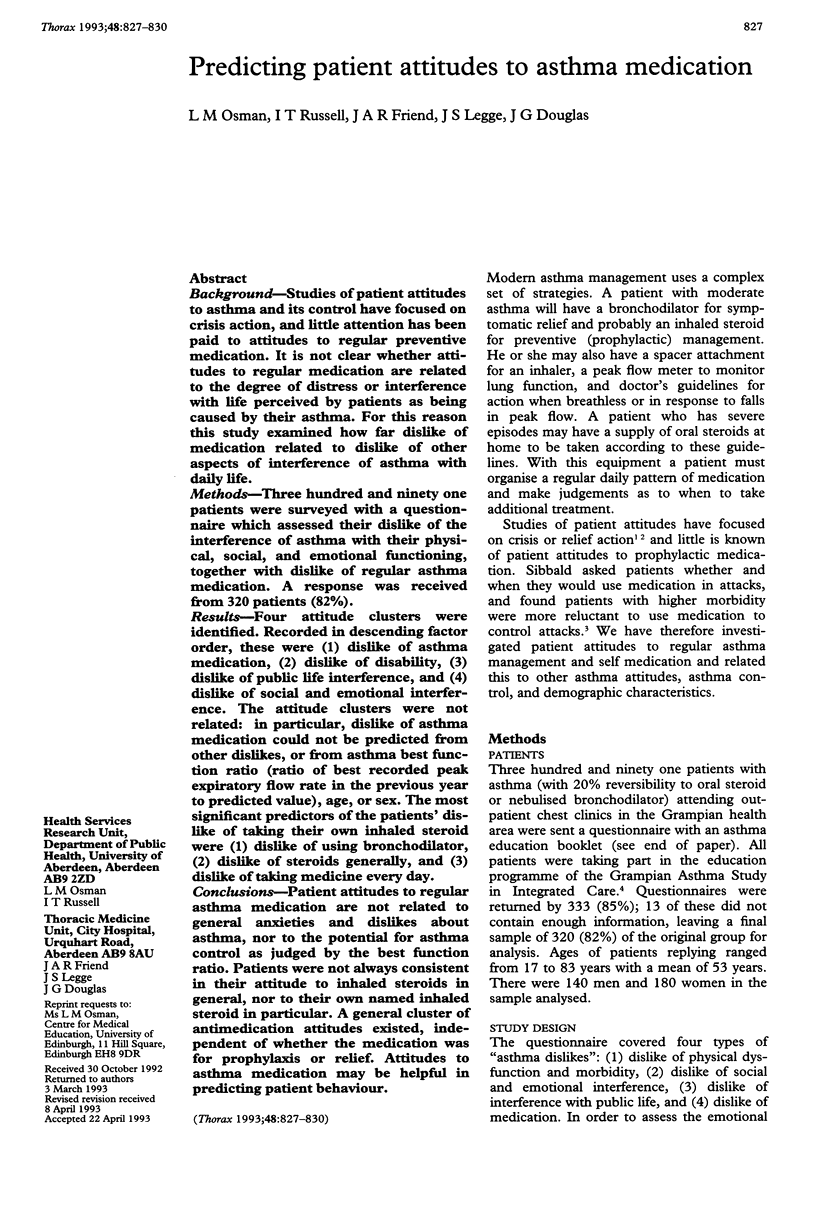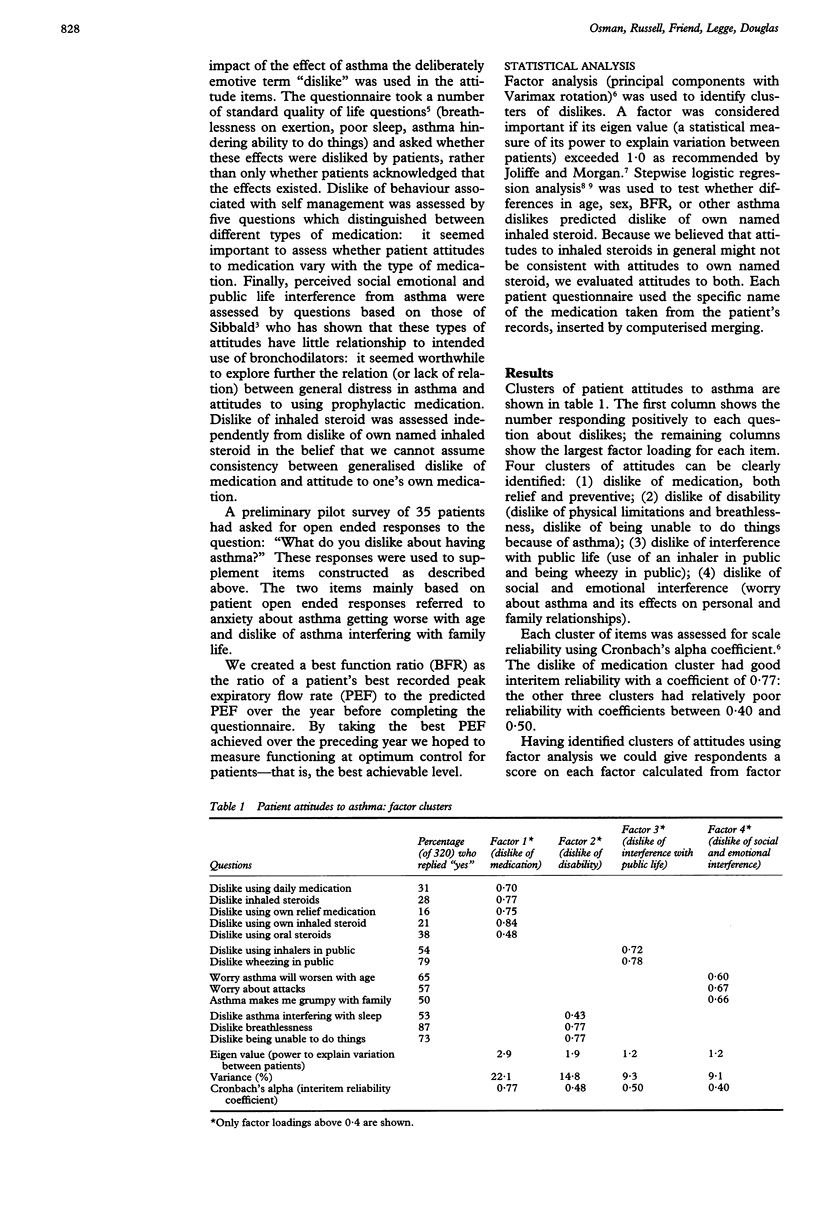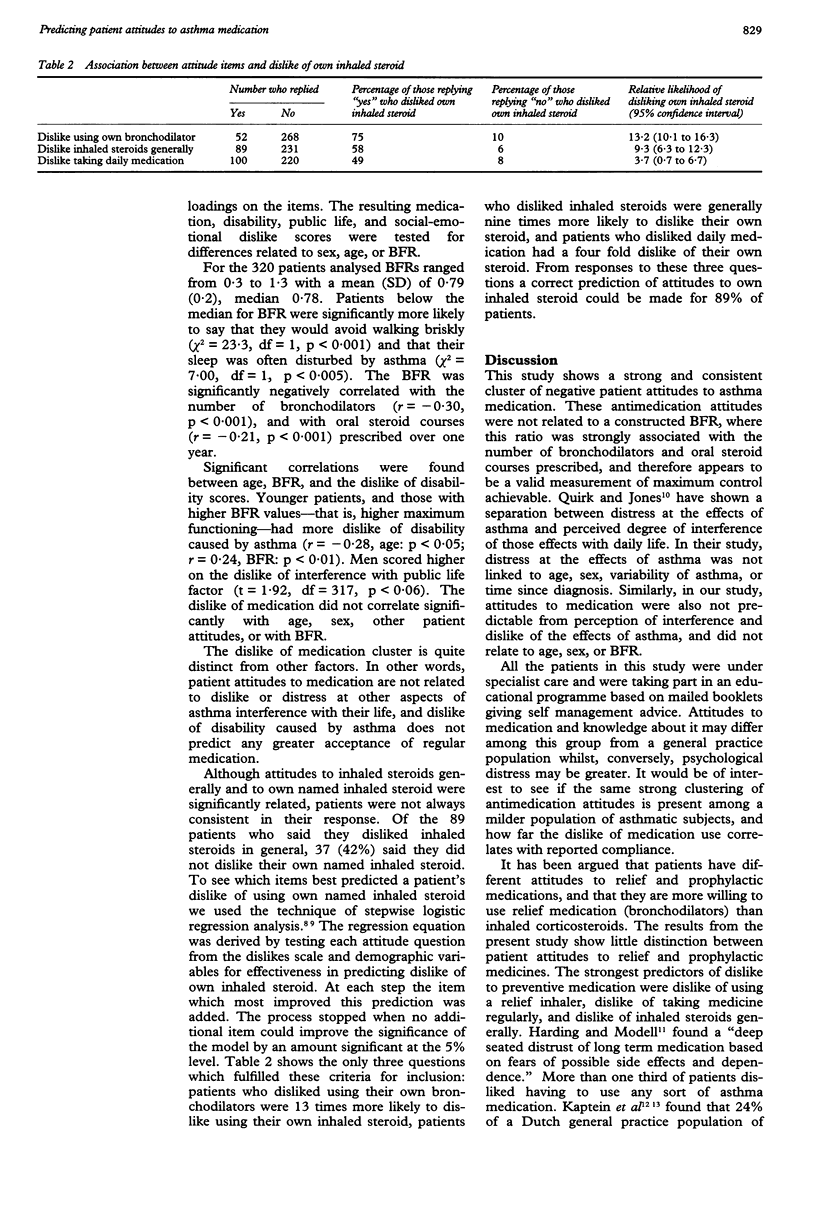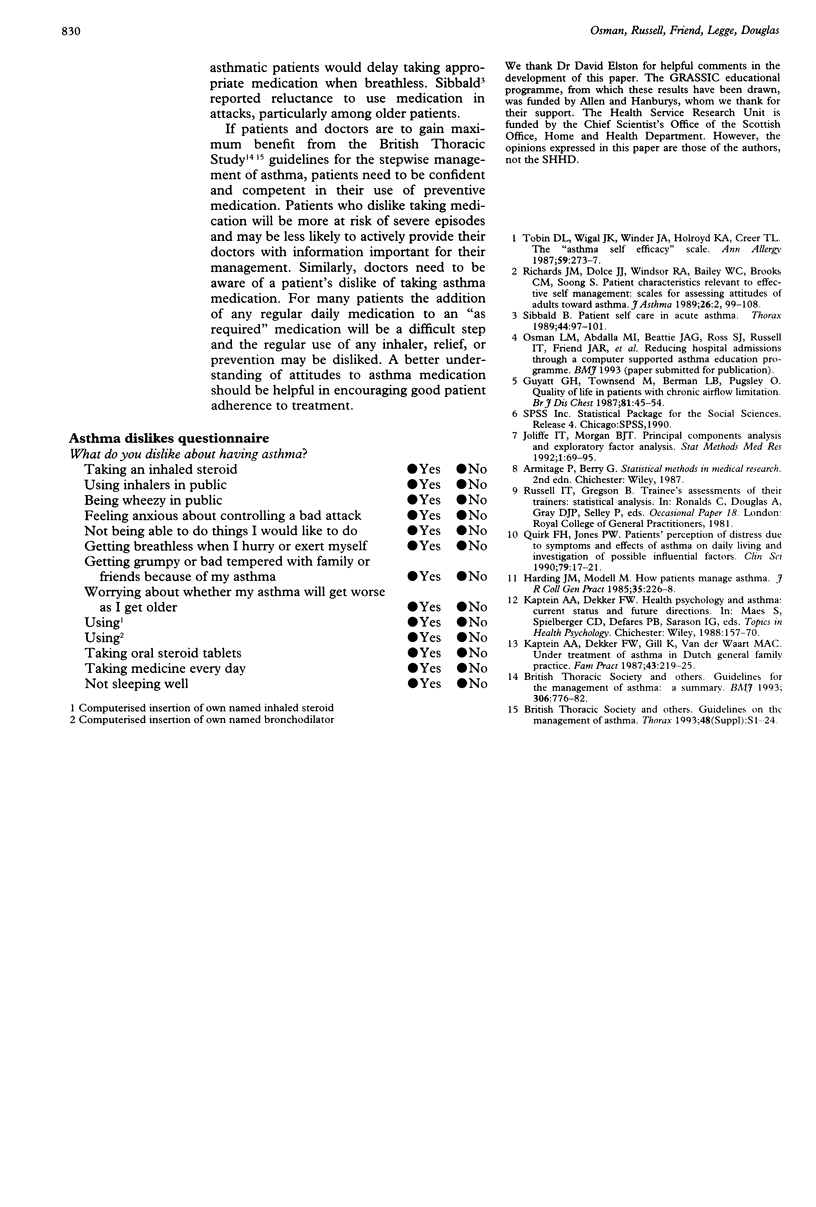Abstract
BACKGROUND--Studies of patient attitudes to asthma and its control have focused on crisis action, and little attention has been paid to attitudes to regular preventive medication. It is not clear whether attitudes to regular medication are related to the degree of distress or interference with life perceived by patients as being caused by their asthma. For this reason this study examined how far dislike of medication related to dislike of other aspects of interference of asthma with daily life. METHODS--Three hundred and ninety one patients were surveyed with a questionnaire which assessed their dislike of the interference of asthma with their physical, social, and emotional functioning, together with dislike of regular asthma medication. A response was received from 320 patients (82%). RESULTS--Four attitude clusters were identified. Recorded in descending factor order, these were (1) dislike of asthma medication, (2) dislike of disability, (3) dislike of public life interference, and (4) dislike of social and emotional interference. The attitude clusters were not related: in particular, dislike of asthma medication could not be predicted from other dislikes, or from asthma best function ratio (ratio of best recorded peak expiratory flow rate in the previous year to predicted value), age, or sex. The most significant predictors of the patients' dislike of taking their own inhaled steroid were (1) dislike of using bronchodilator, (2) dislike of steroids generally, and (3) dislike of taking medicine every day. CONCLUSIONS--Patient attitudes to regular asthma medication are not related to general anxieties and dislikes about asthma, nor to the potential for asthma control as judged by the best function ratio. Patients were not always consistent in their attitude to inhaled steroids in general, nor to their own named inhaled steroid in particular. A general cluster of antimedication attitudes existed, independent of whether the medication was for prophylaxis or relief. Attitudes to asthma medication may be helpful in predicting patient behaviour.
Full text
PDF



Selected References
These references are in PubMed. This may not be the complete list of references from this article.
- Guyatt G. H., Townsend M., Berman L. B., Pugsley S. O. Quality of life in patients with chronic airflow limitation. Br J Dis Chest. 1987 Jan;81(1):45–54. doi: 10.1016/0007-0971(87)90107-0. [DOI] [PubMed] [Google Scholar]
- Harding J. M., Modell M. How patients manage asthma. J R Coll Gen Pract. 1985 May;35(274):226–228. [PMC free article] [PubMed] [Google Scholar]
- Joliffe I. T., Morgan B. J. Principal component analysis and exploratory factor analysis. Stat Methods Med Res. 1992;1(1):69–95. doi: 10.1177/096228029200100105. [DOI] [PubMed] [Google Scholar]
- Kaptein A. A., Dekker F. W., Gill K., van der Waart M. A. Undertreatment of asthma in Dutch general practice. Fam Pract. 1987 Sep;4(3):219–225. doi: 10.1093/fampra/4.3.219. [DOI] [PubMed] [Google Scholar]
- Quirk F. H., Jones P. W. Patients' perception of distress due to symptoms and effects of asthma on daily living and an investigation of possible influential factors. Clin Sci (Lond) 1990 Jul;79(1):17–21. doi: 10.1042/cs0790017. [DOI] [PubMed] [Google Scholar]
- Richards J. M., Jr, Dolce J. J., Windsor R. A., Bailey W. C., Brooks C. M., Soong S. Patient characteristics relevant to effective self-management: scales for assessing attitudes of adults toward asthma. J Asthma. 1989;26(2):99–108. doi: 10.3109/02770908909073238. [DOI] [PubMed] [Google Scholar]
- Sibbald B. Patient self care in acute asthma. Thorax. 1989 Feb;44(2):97–101. doi: 10.1136/thx.44.2.97. [DOI] [PMC free article] [PubMed] [Google Scholar]
- Tobin D. L., Wigal J. K., Winder J. A., Holroyd K. A., Creer T. L. The "Asthma Self-Efficacy Scale". Ann Allergy. 1987 Oct;59(4):273–277. [PubMed] [Google Scholar]


